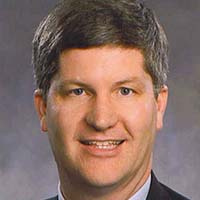 Oconomowoc Criminal Lawyers, Wisconsin
Oconomowoc Criminal Lawyers, Wisconsin
Sponsored Lawyers
1-3 of 3 matches
Criminal, Traffic, Personal Injury, Business
Attorney McClure has a general practice serving individuals, families, and small businesses. Early in his career Attorney McClure gained valuable experience at the Milwaukee City Attorney's office, Milwaukee County District Attorney's office, then in private practice with an "A" rated Milwaukee litigation firm. Attorney McClure then developed a general practice in the metro Milwaukee area over the next decade which became known as McClure Law Offices. His practice has been located in Delafield, Wisconsin since 1997. A trial attorney by training, with numerous civil and criminal jury trials in his career, Attorney McClure brings a wealth of experience to his clients at the local, state and national levels in civil, criminal, administrative and appellate law. The law office is a limited liability company, Attorney Thomas J. McClure LLC. The office is generally known by its trade name "McClure Law Offices. He has appeared on Wisconsin Public Television, NBC's Today Show, and is listed in Who's Who in American Law.
(more)




